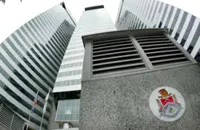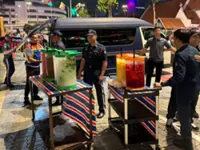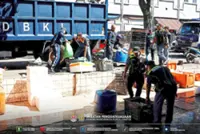KUALA LUMPUR’S bustling food scene owes much of its charm to al fresco dining.
However, unauthorised dining in public spaces is costing Kuala Lumpur City Hall (DBKL) millions of ringgit in lost revenue.
Follow us on our official WhatsApp channel for breaking news alerts and key updates!
DBKL
,
al fresco dining
,
eateries
,
foodtrucks
,
parking
,
street-parking
,
bays
,
revenue
,
summons
,
enforcement
,
Thank you for your report!





